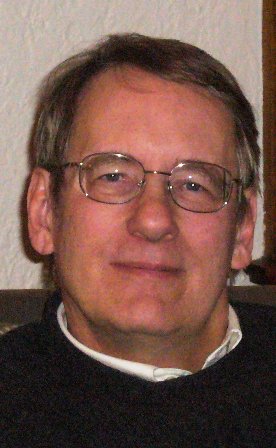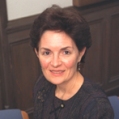
Faculty
José Alaniz | Pat Brown | Sharan Brown | Lance A. Forshay | Sara Goering | Kurt Johnson | Jerry Kessinger | Dennis Lang | Paul Miller | Ilene Schwartz | Anne C. Steinmann | Joanne Wioak
José Alaniz
 Ph.D., Comparative Literature,
University of California at Berkeley, 2003
Ph.D., Comparative Literature,
University of California at Berkeley, 2003
Assistant Professor, Department of Slavic Languages and Literatures
Adjunct, Comparative Literature
M256 Smith, Box 353580
206-543-7580
jos23@u.washington.edu
Courses Taught:
- RUSS 420/C. LIT 320 - Disability in Russian Culture, Winter, 2005
- RUSS 420/C. LIT 320 - Healthcare, Death and Disability in Modern Europe, Spring, 2005
Professor Alaniz research interests include Russian culture, death and dying, disability, cinema, eco-criticism and comics. In 2005 the Comics Section of the American Popular Culture Association awarded him the Thomas Inge Prize for Comics Scholarship, for his essay “Death and the Superhero: The Silver Age and Beyond.” His current book projects are Comics and Comic Art in Post-Soviet Russia and Death, Disability and the Superhero: The Silver Age and Beyond.
Selected Publications and Presentations:
- "Cinema Without Barriers" [review of Russian film festival devoted to disability] in Kinokultura, April, 2007, at http://www.kinokultura.com/2007/16-alaniz.shtml
- "Supercrip: Disability and the Silver Age Superhero" in International Journal of Comic Art, Vol. 6, No. 2, 2004
- "Early Necrocinema in Context" (with Seth Graham) in Necrorealism: Contexts, History, Interpretations (University of Pittsburgh Russian Film Symposium Publication), 2001
- "The Mainstreaming of a Russian Disability Consciousness: The Case of White on Black" at the Society for Disability Studies Annual Conference, Seattle, WA, June 2007
Pat Brown
 Ph.D.,
Education, University of Washington
Ph.D.,
Education, University of Washington
Associate Director, Center for Technology and Disability Studies
206-685-4181
pabrown@u.washington.edu
Dr. Brown's research interests include issues in the employment of persons with disabilities, mental retardation, disability policy, technology and disability, and adolescent transition from school to employment. She teaches disability policy and transition from school to employment and adult life.
TopSharan Brown
 Ed.D., Education, University of Washington, 1991
Ed.D., Education, University of Washington, 1991
J.D., Seattle University, 1984
Assistant Professor, Educational Policy and Leadership Studies
Adjunct Faculty, School of Law
261 CHDD, Box 357920
sbrown@u.washington.edu
Courses Taught:
- LSJ/CHID 332 - Introduction to Disability Studies
- LSJ/CHID 434 - Human and Civil Rights of Disabled Individuals: National and International Perspectives
My interest in disability studies focuses on legal advocacy as a way to ensure that the human and civil rights of individuals with disabilities are recognized by society and realized by affected individuals. American society, including the legal system, has much to learn from the international law approach to rights and I try to integrate that perspective in the disability studies courses that I teach.
TopLance A. Forshay
 M.S.
Southern Christian University, Montgomery, AL.
M.S.
Southern Christian University, Montgomery, AL.
B.A. Gallaudet University, Washington, DC., 1992
ASL Lecturer and Program Coordinator
Padelford Hall A215
lforshay@u.washington.edu
Courses Taught:
- ASL 101-103, ASL 405 (Deaf Studies)
- ASL 134 - (Summer intensive course containing ASL 101-103)
I teach in both the Linguistics Department and Disability Studies Program. I am Deaf and ASL is my native language. I grew up with Deaf parents, Deaf siblings and many in Deaf relatives where capitalized “D” Deaf became part of my cultural identity. I was educated in deaf schools using ASL primarily. ASL has become a great interest for me since I grew up in bi-lingual and bi-cultural family (including my mother’s hearing relatives) and in a school with Englishized signing systems while I used ASL at home. My maternal grandfather, who was a church interpreter, taught “Sign Language” in 1970’s when ASL was not generally recognized yet. I helped him as sign model since I was little boy. All these factors led me into study of ASL as a language and compare its linguistics principles with English. It was not until I attended college when I learned that ASL is a true language with its grammatical structures proving itself as a language. Therefore, I have taught ASL since 1988 in various types of setting including community education, private tutor, churches, high school and community colleges. I am doing a research on ASL fingerspelling system especially with the special rule called Secondary Meaning Fingerspelling Loan Signs. I have done several lectures on this topic.
TopSara Goering
 Ph.D.,
Philosophy, University of Colorado, Boulder
Ph.D.,
Philosophy, University of Colorado, Boulder
Assistant Professor of Philosophy
Core Faculty, program on Values in Society
Adjunct in Medical History and Ethics
Condon 624
206-616-2102
sgoering@u.washington.edu
Courses Taught:
- Phil 242 - Medical Ethics
- Phil 345 - Moral Issues in Life and Death
- Phil 409 - Philosophy and Disability
- Phil 540 - Seminar in Ethics: Disability and Dependence in Moral and Political Thought
- Phil 540 - Seminar in Ethics: Justice, Genetics and the Medically Underserved
- Values 511 - Ethics Matters
My work focuses on the intersection between philosophy, disability, and bioethics, with particular interests in autonomy, prenatal testing, genetic and social justice, and quality of life issues.
Selected Publications and Presentations:
- "Choosing Our Friends: Moral Partiality and the Value of Diversity" Journal of Social Philosophy 34(3): 400-413, 2003.
- "Conformity through Surgery and Genetics: The Medical Erasure of Race and Disability" Science and Other Cultures: Issues in Philosophies of Science and Technology (editors, S. Harding and R. Figueroa), New York: Routledge, 2003.
- "Beyond the Medical Model? Disability, Formal Justice, and the Exception for the 'Profoundly Impaired'" Kennedy Institute of Ethics Journal, 12(4): 373-388, 2002.
- "The Ethics of Making the Body Beautiful: What Cosmetic Genetics Can Learn from Cosmetic Surgery" Philosophy & Public Policy Quarterly 21(1): 21-27, 2001.
- "Gene Therapies and the Pursuit of a Better Human" Cambridge Quarterly of Healthcare Ethics 9 (3): 330-341, 2000.
- "It Just Ain't Fair!" - The Ethics of Health Care for African Americans , edited with Annette Dula, Praeger/Greenwood Publishing, 1994.
Kurt Johnson
 Ph.D.,
Rehabilitation Psychology, University of Wisconsin-Madison
Ph.D.,
Rehabilitation Psychology, University of Wisconsin-Madison
M.A., Rehabilitation and Mental Health Counseling the University of Washington
Professor, Department of Rehabilitation Medicine
BB-957
206-543-3677
kjohnson@u.washington.edu
I am the head of the Division of Rehabilitation Counseling in the department, and director of the U.W. Center for Technology and Disability Studies. My research interests include measurement of outcomes in rehabilitation, participation and employment, secondary conditions, multiple sclerosis, disability policy, technology and disability, and adjustment to disability.
Selected Publications and Presentations:
- Johnson, K., Brown, S., Amtmann, D., & Thompson, T. (2003). Web accessibility in post-secondary education: Legal and policy considerations. Information Technology and Disabilities, 9 (2), p. 2 – 24.
- Johnson, K., Amtmann, D., Yorkston, K., Klasner, E., & Kuehn, C. (2003). Medical, psychological, social, and programmatic barriers to employment for people with multiple sclerosis. Journal of Rehabilitation, 70, 38 - 50.
- Johnson, K., Yorkston, K., Klasner, E., Kuehn, C., Johnson, E., Amtmann, D. (2004). The costs and benefits of employment: A qualitative study of experiences of individuals living with multiple sclerosis. Archives of Physical Medicine and Rehabilitation, 85(2), 201 – 209.
- Amtmann, D., Weydt, P., Johnson, K., Jensen, M., & Carter, G. (2004). Survey of cannabis use in patients with amyotrophic lateral sclerosis. American Journal of Hospice and Palliative Care, 21(2), 95 – 104.
- Johnson, K., Dudgeon, B., Kuehn, C., & Walker, W. (2007). Assistive technology use among adolescents and young adults with spinal bifida. American Journal of Public Health, 97(2), 330 - 336.
- Harniss, M., Amtmann, D., Cook, D., & Johnson, K. (2007). Considerations for developing interfaces for collecting patient reported outcomes that allow inclusion of individuals with disabilities. Medical Care, 45(5, Suppl 1), 48 – 54.
- Liu, A. L., Hile, H., Kautz, H., Borriello, G., Brown, P., Harniss, M., Johnson, K. (in press). Indoor wayfinding: Developing a functional interface for individuals with cognitive impairments. Disability and Rehabilitation: Assistive Technology.
- Cetin, K., Johnson, K., Ehde, D., Kuehn, C., Amtmann, D., & Kraft, G. (2007). Antidepressant use in multiple sclerosis: Epidemiologic study of a large community sample. Multiple Sclerosis, 13(8), 1033 – 1037.
- Bamer, A., Cetin, K., Amtmann, D., Bowen, J., & Johnson, K. (2007). Comparing a self-report questionnaire with physician assessment for determining multiple sclerosis clinical disease course: A validation study. Multiple Sclerosis, Multiple Sclerosis, 13(8), 1046 - 1053.
Jerry Kessinger
 M.S.W
M.S.W
Part-time lecturer, School of Social Work
jerryk@u.washington.edu
Courses Taught:
- Soc W 576 - Empowerment Practice with Persons with Disabilities
My interests lie in community-based services and inclusion for people with developmental disabilities; civil rights, social justice and disability policy at all levels.
TopDennis Lang
 B.S.N.,
M.P.H.
B.S.N.,
M.P.H.
Associate Director, Disability Studies
Rehabilitation Medicine, Auxiliary Faculty
206-522-3104
dlang@u.washington.edu
Courses Taught:
- LSJ/CHID 332 - Introduction to Disability Studies (co-instructor)
I am a member of the Diversity Council's Advisory Committee on Disability Issues, the Standing Committee on Accessibility, the Diversity Minor Advisory Committee and the Advisory Board of the Center for Curriculum Transformation. I co-teach Law, Society and Justice 332 on a regular basis.
TopPaul Miller
 J.D., Harvard Law School, 1986
J.D., Harvard Law School, 1986
B.A., University of Pennsylvania, 1983
Director, Disability Studies
Henry M. Jackson Professor of Law
Professor Miller’s primary teaching and research interests include disability law, employment discrimination and genetics and the law. His current research projects include genetics, eugenics and disability, employment discrimination, and the Americans with Disabilities Act. He teaches first year torts. Professor Miller arrived at the University of Washington School of Law after spending 12 years in public service in Washington, D.C. He is one of the longest serving commissioners of the U.S. Equal Employment Opportunity Commission, the federal agency which enforces this nation's employment discrimination laws. He has also served as the White House liaison to the disability community. Prior to joining the U.S. government, Professor Miller was the director of litigation for the Western Law Center for Disability Rights and taught law in Los Angeles, California at Loyola Law School and at UCLA Law School. He began his career as a litigation associate at a Los Angeles law firm. In 2003, Professor Miller received an honorary Doctor of Laws from the CUNY Law School in New York.
TopIlene Schwartz
 Ph.D., Child and Developmental Psychology, University
of Kansas, 1989
Ph.D., Child and Developmental Psychology, University
of Kansas, 1989
Chair and Professor, Special Education, College of Education
Director, Experimental Education Unit
Miller Hall, Box 353600
ilene@u.washington.edu
Ilene Schwartz has worked extensively with children with challenging behavior, autism and other low-incidence disabilities and has expertise in early childhood education, early childhood special education, elementary education, and applied behavior analysis. Dr. Schwartz maintains an active research and training agenda. She is currently the Principal Investigator for the Center for Professional Development in Autism, a federally funded Center grant directed to train teams of service providers to deliver services to students with autism. The national project to provide personnel development to school teams includes a strong focus on school wide positive behavior support, with an emphasis on students who require individualized tertiary interventions. In addition, she is the co-PI on a technical assistance grant to provide services to elementary students with autism (Elementary DATA)and on a model demonstration grant provide positive behavior support to students with the most significant behavioral challenges. Dr. Schwartz frequently works with the State Educational Agency and a number of local school districts on issues regarding students who demonstrate challenging behavior, and was appointed by the governor to serve on a state task force examining services for individuals with ASD. She is currently a member of the Seattle Public School’s Special Education Advisory Committee. She serves on the editorial review board of: Journal of Early Intervention, Topics in Early Childhood Special Education, Journal of Positive Behavioral Interventions, and Journal of Applied Behavior Analysis.
TopAnne C. Steinemann
 Ph.D.,
Civil and Environmental Engineering, Stanford University, 1993
Ph.D.,
Civil and Environmental Engineering, Stanford University, 1993
Professor, Department of Civil and Environmental Engineering
Professor, Evans School of Public Affairs
103 Wilson, Box 352700
acstein@u.washington.edu
Anne C. Steinemann specializes in water resources and environmental management, linking science and decision-making. She received the National Science Foundation CAREER Award, in addition to university and national teaching awards. Dr. Steinemann advises governments and industries on water and environmental issues, and directs research funded by NSF, NOAA, USGS, NASA, EPA, and other agencies. She recently published two textbooks: Microeconomics for Public Decisions (South-Western, 2005) and Exposure Analysis (CRC Press, 2006). Her work integrates engineering analyses with expertise in economics, public health, law, and policy. In addition to her faculty appointments at UW, Dr. Steinemann directs The Water Center, an interdisciplinary research center that addresses regional water problems.
TopJoanne Wioak
 Ph.D., History and Philosophy of Science and
Technology, University of Toronto
Ph.D., History and Philosophy of Science and
Technology, University of Toronto
Lecturer
jwoiak@u.washington.edu
Courses Taught:
- LSJ/CHID 332 - Disability and Society: Introduction to Disability Studies
- HIST 290/CHID 270 - History of Eugenics
- HIST 490 - Biology, Society, and Human Diversity
- BIS 393 - Redesigning Humanity: Science Fiction and the Future of the Body
I teach in the Disability Studies Program, the History Department, and Interdisciplinary Arts and Sciences at UW Bothell. My PhD is in the History and Philosophy of Science and Technology from the University of Toronto, where I wrote my dissertation on the history of British eugenics in the early 20th century. I continue to research and publish on the history of eugenics in England and America, and am currently involved in the Seattle Disability History Project. Many of my courses on historical and contemporary subjects include a disability studies component. In my science studies classes such as “Biology, Society, and Human Diversity” we explore the interactions between biological knowledge and socio-political ideologies such as racism, sexism, and ableism. I often use science fiction texts from different eras to evaluate public attitudes towards new technologies and bioethical issues, and my students are encouraged to analyze the legacies of the eugenics movement for modern-day developments in human genetics and reproductive technologies. I occasionally teach a core course in the Disability Studies Minor, LSJ/CHID 332 Disability and Society. Topics covered in this introductory survey include the medical vs. social models of disability, the histories and lives of people with disabilities, laws and social policies, human rights and bioethics, and cultural representations in media from literature to reality TV.
Top